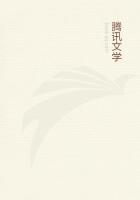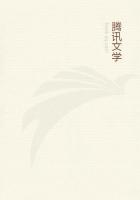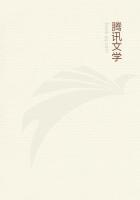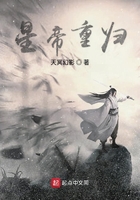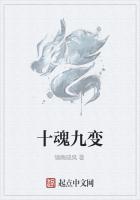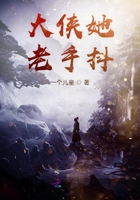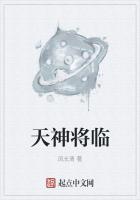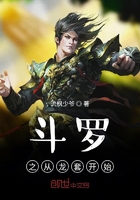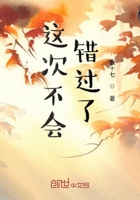My mother was a great reader, and with ten minutes to spare before the starch was ready would begin the 'Decline and Fall' - and finish it, too, that winter. Foreign words in the text annoyed her and made her bemoan her want of a classical education - she had only attended a Dame's school during some easy months - but she never passed the foreign words by until their meaning was explained to her, and when next she and they met it was as acquaintances, which I think was clever of her. One of her delights was to learn from me scraps of Horace, and then bring them into her conversation with 'colleged men.' I have come upon her in lonely places, such as the stair-head or the east room, muttering these quotations aloud to herself, and I well remember how she would say to the visitors, 'Ay, ay, it's very true, Doctor, but as you know, "Eheu fugaces, Postume, Postume, labuntur anni,"' or 'Sal, Mr. So-and-so, my lassie is thriving well, but would it no' be more to the point to say, "O matra pulchra filia pulchrior"?' which astounded them very much if she managed to reach the end without being flung, but usually she had a fit of laughing in the middle, and so they found her out.
Biography and exploration were her favourite reading, for choice the biography of men who had been good to their mothers, and she liked the explorers to be alive so that she could shudder at the thought of their venturing forth again; but though she expressed a hope that they would have the sense to stay at home henceforth, she gleamed with admiration when they disappointed her. In later days I had a friend who was an African explorer, and she was in two minds about him; he was one of the most engrossing of mortals to her, she admired him prodigiously, pictured him at the head of his caravan, now attacked by savages, now by wild beasts, and adored him for the uneasy hours he gave her, but she was also afraid that he wanted to take me with him, and then she thought he should be put down by law. Explorers' mothers also interested her very much; the books might tell her nothing about them, but she could create them for herself and wring her hands in sympathy with them when they had got no news of him for six months. Yet there were times when she grudged him to them - as the day when he returned victorious. Then what was before her eyes was not the son coming marching home again but an old woman peering for him round the window curtain and trying not to look uplifted. The newspaper reports would be about the son, but my mother's comment was 'She's a proud woman this night.'
We read many books together when I was a boy, 'Robinson Crusoe' being the first (and the second), and the 'Arabian Nights' should have been the next, for we got it out of the library (a penny for three days), but on discovering that they were nights when we had paid for knights we sent that volume packing, and I have curled my lips at it ever since. 'The Pilgrim's Progress' we had in the house (it was as common a possession as a dresser-head), and so enamoured of it was I that I turned our garden into sloughs of Despond, with pea-sticks to represent Christian on his travels and a buffet-stool for his burden, but when I dragged my mother out to see my handiwork she was scared, and I felt for days, with a certain elation, that I had been a dark character. Besides reading every book we could hire or borrow I also bought one now and again, and while buying (it was the occupation of weeks) I read, standing at the counter, most of the other books in the shop, which is perhaps the most exquisite way of reading. And I took in a magazine called 'Sunshine,' the most delicious periodical, I am sure, of any day. It cost a halfpenny or a penny a month, and always, as I fondly remember, had a continued tale about the dearest girl, who sold water-cress, which is a dainty not grown and I suppose never seen in my native town. This romantic little creature took such hold of my imagination that I cannot eat water-cress even now without emotion. I lay in bed wondering what she would be up to in the next number; I have lost trout because when they nibbled my mind was wandering with her; my early life was embittered by her not arriving regularly on the first of the month.
I know not whether it was owing to her loitering on the way one month to an extent flesh and blood could not bear, or because we had exhausted the penny library, but on a day I conceived a glorious idea, or it was put into my head by my mother, then desirous of ****** progress with her new clouty hearthrug. The notion was nothing short of this, why should I not write the tales myself? I did write them - in the garret - but they by no means helped her to get on with her work, for when I finished a chapter I bounded downstairs to read it to her, and so short were the chapters, so ready was the pen, that I was back with new manu before another clout had been added to the rug. Authorship seemed, like her bannock-baking, to consist of running between two points.
They were all tales of adventure (happiest is he who writes of adventure), no characters were allowed within if I knew their like in the flesh, the scene lay in unknown parts, desert islands, enchanted gardens, with knights (none of your nights) on black chargers, and round the first corner a lady selling water-cress.
At twelve or thereabout I put the literary calling to bed for a time, having gone to a school where cricket and football were more esteemed, but during the year before I went to the university, it woke up and I wrote great part of a three-volume novel. The publisher replied that the sum for which he would print it was a hundred and - however, that was not the important point (I had sixpence): where he stabbed us both was in writing that he considered me a 'clever lady.' I replied stiffly that I was a gentleman, and since then I have kept that manu concealed. I looked through it lately, and, oh, but it is dull! I defy any one to read it.
The malignancy of publishers, however, could not turn me back.

